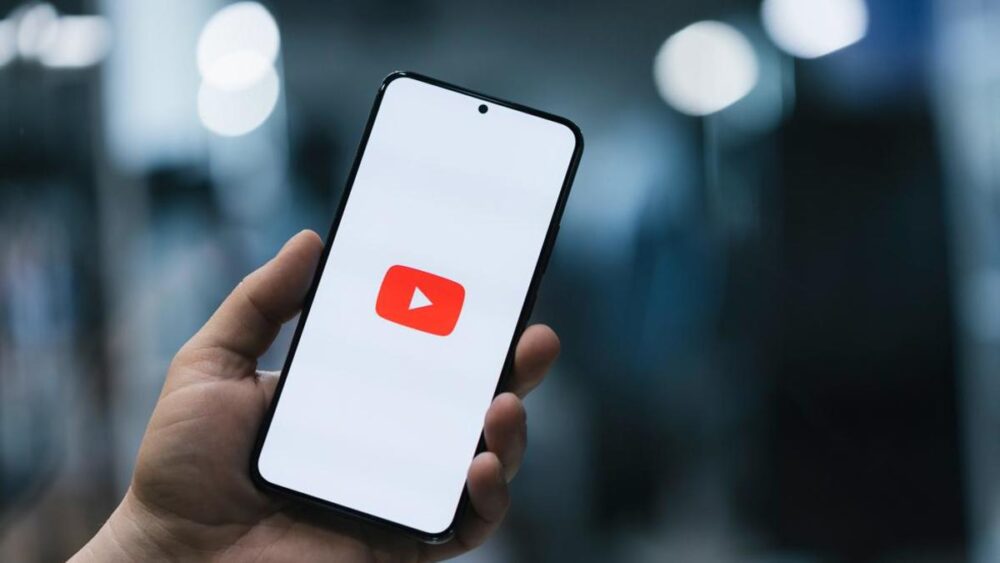Google Comments on Sharp Decline in Russian YouTube Traffic
According to industry experts and Google’s own statistics, Russian YouTube traffic has recently dropped to just 20% of its usual levels. Google representatives reiterated to the media that this “is not the result of any technical issues or actions taken by the company.”
As previously reported, access to YouTube for Russian users has continued to deteriorate. Video playback issues are now occurring not only on desktop networks but also on mobile networks operated by MTS, MegaFon, T2, and Beeline. Media market sources had warned that from mid-December, blocks would intensify, eventually leading to a complete block of YouTube, including its mobile version.
Current data from Google and industry experts confirm that Russian YouTube traffic has indeed plummeted to about 20% of normal levels. Yesterday, Google again told RBC that the situation is not due to technical problems or company actions. “Google and YouTube are among the few remaining platforms offering access to free, independent information in Russia. We are aware of reports that some people cannot access YouTube in Russia. This is not the result of any technical issues or actions on our part,” Google stated.
Since August of this year, Google representatives have repeatedly commented on the situation, making similar statements.
Timeline of Events
- Spring 2022: Google notified Russian ISPs about the shutdown of Google Global Cache (GGC) servers, which speed up access to Google services, including YouTube. At the start of 2022, about 700 GGC servers operated in Russian networks, with expectations to reduce to around 450 by the end of 2023.
- Late 2023: Konstantin Kolesov, Head of Strategic Data Transmission Development at PJSC VimpelCom (Beeline), reported at the MSK-IX Peering Forum that Google offered Russian operators to establish direct connections in Moscow or St. Petersburg to maintain quality access to its services, instead of relying on outdated and overloaded cache servers.
- July 12, 2024: Rostelecom warned of potential technical issues with YouTube video loading speeds due to problems with Google Global Cache equipment. The company stated that these issues could affect all Russian operators’ subscribers.
- On the same day, Kremlin spokesperson Dmitry Peskov said Russian authorities did not plan to restrict YouTube access, attributing service issues to outdated equipment that had not been updated for over two years.
- Also on July 12, Gazeta.ru, citing sources close to the presidential administration, reported that Russian authorities planned to fully block YouTube in September 2024.
- July 24, 2024: Rostelecom reported worsening YouTube video quality, especially in high resolutions, and an increase in user complaints. The company again blamed Google for not updating or expanding its cache equipment in Russia since 2022, leading to equipment wear and inability to handle increased traffic.
- July 25, 2024: Contrary to Rostelecom’s statement, Alexander Khinshtein, head of the State Duma Committee on Information Policy, said on Telegram that the “degradation” of YouTube was a forced measure aimed at the foreign platform’s administration, not Russian users.
- July 26, 2024: Roskomnadzor commented that measures against YouTube were due to “disrespect for our country,” adding that the agency had sufficient tools to motivate the company. The agency cited numerous legal violations and disrespect as grounds for action against YouTube.
- August 1, 2024: Widespread issues with YouTube began in Russia. Google representatives stated for the first time that the slowdown was not due to technical problems or company actions. IT experts suggested the issues could be caused by traffic throttling using technical means to counter threats (TSPU).
- August 8, 2024: YouTube became nearly inaccessible on many Russian networks. Vadim Yavorsky, CTO of Piter-IX, reported that Google traffic at Piter-IX exchange points halved on August 1 and halved again on August 8. Media also reported that Roskomnadzor requested operators provide IP and physical addresses of Google Global Cache servers.
- August 12, 2024: Over 135 regional telecom operators appealed to the Ministry of Digital Development and Roskomnadzor for a public explanation regarding YouTube slowdowns. The “Rosteleset” association confirmed the letter was received.
- August 30, 2024: Some operators began implementing solutions to keep YouTube accessible, but the Main Radio Frequency Center (GRChTs), under Roskomnadzor, sent a letter urging operators to stop using technologies that distort, fragment, or substitute internet traffic.
- September 20, 2024: The “Rosteleset” association, representing over 200 regional operators, filed a complaint with the Federal Antimonopoly Service (FAS) over “discriminatory conditions for telecom operators due to uneven slowdowns of YouTube, Google Search, and other services.”
- Mid-November 2024: Rostelecom again told the media that it was not technically restricting YouTube in Russia, attributing service degradation to Google’s failure to update its content caching equipment in the country.
- Mid-December 2024: YouTube access issues began affecting users on mobile networks (MTS, MegaFon, T2, Beeline), not just desktops. The decline in Russian traffic accelerated.
- December 19, 2024: During a live Q&A, President Vladimir Putin was asked about YouTube slowdowns. He said that if YouTube and Google changed their operations in Russia, there would be no problems. He attributed issues to the need for service maintenance but agreed that Roskomnadzor was right to make claims against YouTube, emphasizing that the platform must comply with Russian laws and avoid using the network for political purposes or removing Russian artists and public figures from search results.



